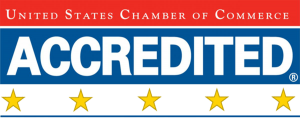
2020 Ballot Amendments

An important part of the 2020 election lies down ticket in our state and local elections and amendments. This synopsis is aimed to help you figure out where you stand on the amendments so that you can be informed and prepared when you cast your ballot.
Scroll down for video amendment discussions with local politicos Bryan Eastman and Alex Patton.
Statewide Ballot Amendments
Local Ballot Amendments
Amendment 1: Citizenship Required to Vote in Florida Elections
Summary: This amendment provides that only United States citizens who are at least eighteen years of age, a permanent resident of Florida, and registered to vote, as provided by law, shall be qualified to vote in a Florida election. Supporters argue that the change would protect the electoral process by changing the current wording, which says “every citizen,” to “only a citizen,” thereby preventing cities from allowing non-citizens to vote, as some in other states have. Opponents say that Florida law already allows only citizens to vote and that the change is unnecessary.
Sponsor: Florida Citizen Voters
Amendment 2: Raising Florida’s Minimum Wage
Summary: This amendment would raise the state’s minimum wage to $10.00 per hour effective September 30th, 2021. Each September 30th thereafter, minimum wage would increase by $1.00 per hour until the minimum wage reaches $15.00 per hour on September 30th, 2026. From that point forward, future minimum wage increases would revert to being adjusted annually for inflation starting September 30th, 2027. Supporters argue that the amendment would help to level the economic playing field for workers. Opponents of the measure say the measure will increase business costs and result in thousands of lost jobs in the wake of a COVID-induced recession that still holds much uncertainty for businesses and individuals.
Sponsor: Florida For a Fair Wage
Amendment 3: All Voters Vote in a Primary Elections for State Legislature, Governor and Cabinet
Summary: Effective Jan. 1, 2024, this measure would allow all registered voters to vote in primaries for state legislature, governor, and cabinet regardless of political party affiliation. All candidates for an office, including party nominated candidates, would appear on the same primary ballot and the two candidates receiving the most votes would advance to the general election. If only two candidates qualify, no primary would be held and the winner would be determined in the general election. Candidate party affiliations would be permitted to appear on the ballot. Supporters argue that the measure would give more voice to unaffiliated voters, who comprise over 25% of the electorate and tend to hold less extreme views. Opponents say the change could hurt minority representation in Florida’s government by opening primaries in predominantly black Democratic districts to white Republican and independent voters.
Sponsor: All Voters Vote, Inc.
Amendment 4: Voter Approval of Constitutional Amendments
Summary: This amendment would require all proposed amendments or revisions to the state constitution to receive the approval of 60% of voters in two separate elections in order to take effect. The proposal applies the current thresholds for passage to each of the two elections. Proponents of the measure say it would put safeguards in place to ensure that voters have a full understanding of the immediate and long-term effects of proposed constitutional changes. Opponents say this measure would create barriers to direct democracy in Florida by adding hurdles to what some already consider to be a major, costly feat requiring hundreds of thousands of signatures.
Sponsor: Keep Our Constitution Clean PC
Amendment 5: Limitation on Homestead Assessments
Summary: This amendment would give Florida homeowners an additional year to claim accrued Save-Our-Homes homestead tax benefits on a property they have vacated to move into another homesteaded property. Currently, Floridians have only two hears after vacating the property to accrue and use the tax benefits.
Under Florida’s “Save Our Homes” law, the taxable value of homes owned by claimants of a homestead exemption may increase by no more than 3% per year. However, the home’s market value may outpace that increase. The difference between the home’s taxable value and its assessed value is what a homeowner who sells one homesteaded property and buys another is required to pay. The Florida Legislature passed the measure without opposition; however, the legislative staff analysis of the bill says it comes with a price tag of about $10.2 million annually for local governments when it is fully enacted.
Sponsor: The Florida Legislature/House (HJR 369)
Amendment 6: Ad Valorem Tax Discount for Spouses of Certain Deceased Veterans Who Had Permanent, Combat-Related Disabilities
Summary: Effective, Jan. 1, 2021, this amendment would allow the spouses of certain honorably discharged veterans to continue to receive a discount on property taxes after the veteran’s death as long as the spouse holds the property title and resides in the property. In most cases, the exemption would expire if the spouse remarries, sells the house or otherwise disposes of the property, however it would be transferrable under certain circumstances. This bill passed the Florida Legislature unopposed but according to legislative staff analysis comes with a $4 million annual price tag for local governments.
Sponsor: The Florida Legislature/House (HJR 877)
Renewal of the Existing One Mill Ad Valorem Tax for School District Operating Expenses
Summary: This amendment would renew the existing One Mill ad valorem tax effective July 1, 2021, and ending June 30, 2025. The proceeds of the tax currently provide about $17 million per year to shore up operating expenses that cover school nurses; music, art and drama programs; school library programs; school counseling programs; band and chorus programs; academic magnets; career and technical education programs; and classroom technology updates. The One Mill is widely supported across the community. Without it, a major void in school funding would be created in a year when the district is already slated to receive less funding from certain state funding streams.
Sponsor: School Board of Alachua County
County Charter Amendment Establishing County Growth Management Area
Summary: This amendment would allow the County to establish a “Growth Management Area” in which the County would permanently govern land use, regardless of whether the land is inside or outside of municipal boundaries. In instances of conflict between the County’s and a municipality’s land use decision or rules, the County’s decision or rules would prevail. Proponents of the measure say it will protect environmentally sensitive lands. Opponents of the ballot item say the wording on the ballot is misleading and that the measure itself would preempt municipal governments from making land use decisions according to the wishes of the municipal residents who elected them.
Sponsor: Alachua County Charter Review Commission
Relationship Between County and Municipal Ordinances for Protection of Certain Natural Resources
Summary: In instances of conflict between county and municipal land use ordinances, this amendment would provide for the more stringent ordinance to prevail. Proponents say this measure allows the County to protect environmentally sensitive lands. Opponents say the measure would preempt municipal governments from making land use decisions according to the wishes of the municipal residents who elected them.
Sponsor: Alachua County Commission
Identification and Elimination of Racial and Gender Bias in Alachua County Policies
Summary: This measure would provide for the Board of County Commissioners to annually examine county operational and service design and delivery policies for elements of racial and gender bias, and to eliminate or modify those elements to remove racial and gender bias.
Sponsor: Alachua County Commission
County Charter Amendment Establishing Alachua County Affordable Housing Trust Fund
Summary: This measure would allow the County Commission to fund, using fees from new commercial and residential development and other sources, an Alachua County Affordable Housing Trust Fund. The County would be required to administer the fund, obtain an annual audit, and spend any funds in the Trust Fund to exclusively support affordable housing. Proponents say the Trust Fund would be a step forward in the County’s ability to create and sustain affordable housing. Others say there are existing County policies that could be modified or eliminated to reduce the cost of housing without having to create such a fund.
Sponsor: Alachua County Charter Review Commission
County Charter Amendment Concerning Candidate Treasurer Report Requirements
Summary: This amendment would allow for candidates for office to submit treasurer reports electronically only and eliminate any requirement for them to submit the reports on paper. Proponents say that the amendment would reduce paper waste and streamline the process for candidates.
Sponsor: Alachua County Charter Review Commission
County Charter Cleanup Amendment Removing Unconstitutional Provisions
Summary: This amendment would remove two provisions within the County Charter that, since their insertion, have become unconstitutional and unenforceable due to changes in the State Constitution. One pertains to unconstitutional prohibitions on sexual orientation, sexual preference and related characteristics, and the other pertains to residential requirements for Alachua County Commission candidates.
Sponsor: Alachua County Charter Review Commission
Amendment Video Forum
Watch below to see local politicos Bryan Eastman and Alex Patton discuss and debate their perspectives on each of the 2020 State, County and City ballot amendments.
State Ballot Amendments
County Ballot Amendments
City Ballot Amendments
Public Policy Team




